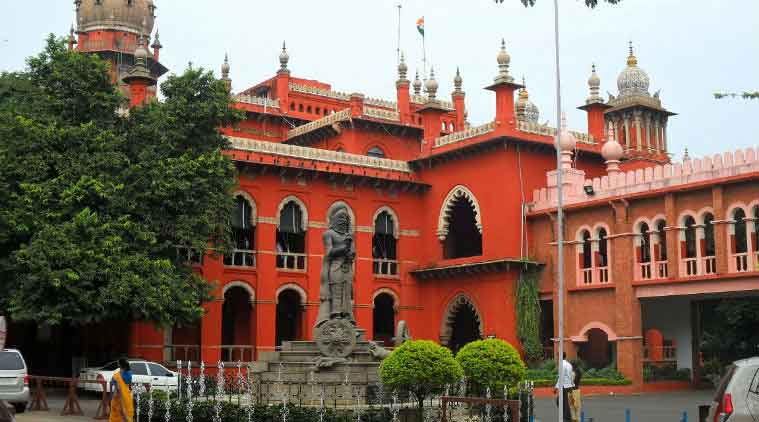 Chief Justice Banerjee said the most senior judge after her — senior judge Justice Huluvadi Ramesh — will nominate a third judge to hear the matter afresh. Status quo would continue till the third judge arrives at a verdict, the CJ said.
Chief Justice Banerjee said the most senior judge after her — senior judge Justice Huluvadi Ramesh — will nominate a third judge to hear the matter afresh. Status quo would continue till the third judge arrives at a verdict, the CJ said.
THE AIADMK government in Tamil Nadu survived a major scare, with the Madras High Court Thursday delivering a split verdict in the disqualification case of the 18 MLAs with rebel party leader T T V Dhinakaran. The matter will now be heard afresh by another judge.
The two-member High Court bench of Chief Justice Indira Banerjee and Justice M Sundar reached a deadlock, with the CJ upholding the disqualification order passed by Tamil Nadu Assembly Speaker P Dhanapal on September 18, 2017. Justice Sundar, however, quashed the Speaker’s order.
Chief Justice Banerjee said the most senior judge after her — senior judge Justice Huluvadi Ramesh — will nominate a third judge to hear the matter afresh. Status quo would continue till the third judge arrives at a verdict, the CJ said.
While disqualifying the MLAs under the Tamil Nadu Legislative Assembly (Disqualification on Ground of Defection) Rules, 1986, the Speaker had cited a meeting of the 18 MLAs with the Governor, and a letter handed over by them to him seeking the removal of Chief Minister E K Palaniswami as a significant reason.
In her verdict, CJ Banerjee wrote: “In the instant case, as already indicated, under the scheme of the Tenth Schedule and the rules framed thereunder, the Speaker is the only authority to decide a disqualification petition…”
The order further stated: “In my opinion, the view taken by the Speaker is a possible, if not plausible, view and I am unable to hold that the said decision is any way unreasonable, irrational or perverse. It is well settled that when two views are possible, the High Court does not, in exercise of its power of judicial review conferred under Article 226 of the Constitution of India, interfere with the decision just because it prefers the other view. No interference is, therefore, warranted with the impugned order passed by the Speaker.”
Admitting the Speaker’s argument that there had been no violation of the principles of natural justice, the order said: “Natural justice only requires that a party should be given reasonable opportunity of representation. Adjournment could not have been claimed as a matter of right, more so when two adjournments had earlier been granted.”
Justice Sundar’s order said it was appropriate to look at the question of whether adequate opportunity was given to the 18 MLAs by the Speaker. “It was argued before us emphatically that… three weeks time was given in the instant case. Testing whether principles of natural justice have been given a go-by, or not, may not be as simple as just counting the number of days given,” he wrote.
Justice Sundar wrote that the Speaker’s order deserves to be set aside on the grounds of “perversity, non-compliance with the principles of natural justice and for the violation of constitutional mandate”.
The 18 MLAs with Dhinakaran, the nephew of ousted AIADMK leader V K Sasikala, had moved against Palaniswami after he joined hands with the other rebel leader O Panneerselvam. Once a trusted aide of Sasikala, Palaniswami was appointed as CM after the Sasikala faction defeated Panneerselvam in a floor test in 2017.
What made the case significant was that the revolt of the 18 MLAs brought the Palaniswami government to a minority last year before the disqualification order. The government needed 117 MLAs in the 234-member House to retain majority, but 122 MLAs were ranged on the other side, including 89 from DMK, eight from Congress, one from IUML and 24 with Dhinakaran. However, the minimum number needed came down to 107 with the disqualification of the 18 MLAs.